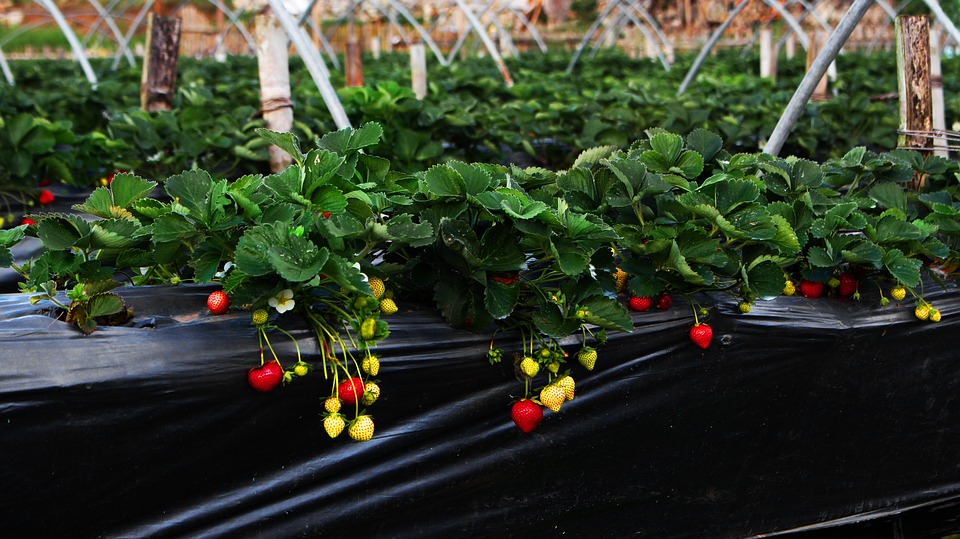From Farm to Table: How Sustainable Farming is Changing the Way We Eat
I still remember the first time I planted my own vegetable garden. The feeling of putting my hands in the soil, nurturing the plants, and eventually harvesting my own food was indescribable. It was a pivotal moment in my life, and it ignited my passion for sustainable farming and gardening. Over the years, I have honed my skills and embraced the off-the-grid lifestyle, living in harmony with nature and growing my own food. Sustainable farming has not only transformed the way I eat, but it is also changing the way people around the world view food and agriculture. In this article, I will share the impact of sustainable farming on our food system and how it is shaping the way we eat.
The movement towards sustainable farming is gaining momentum as people become more conscious about the impact of their food choices on the environment and their health. Sustainable farming focuses on organic practices, biodiversity, soil health, and animal welfare, eliminating the need for harmful pesticides and synthetic fertilizers. It prioritizes the use of renewable resources, conserves water, and reduces pollution, all while producing high-quality, nutrient-rich food. As someone who has spent years living off the grid and embracing sustainable farming practices, I have witnessed firsthand the positive effects of this approach on the environment and the food that ends up on our plates.
One of the most profound ways sustainable farming is changing the way we eat is by reconnecting people with the origins of their food. When you grow your own food or buy from local sustainable farms, you have a deeper appreciation for the effort and care that goes into producing it. You understand the seasonal nature of food and the importance of supporting local farmers. The farm-to-table movement has gained popularity as people seek out fresh, locally sourced ingredients that are free from harmful chemicals and preservatives. Sustainable farming emphasizes the value of whole, unprocessed foods, which not only taste better but also promote better health. It’s a win-win for both the consumer and the environment.
Pro Tips:
– Start small with a simple herb garden or a few vegetable plants to dip your toes into sustainable farming.
– Support local farmers markets and community-supported agriculture (CSA) programs to access fresh, sustainable produce.
Another significant impact of sustainable farming on the way we eat is the diversification of our diets. When you shop at a grocery store, you often see the same fruits and vegetables year-round, regardless of the season. However, sustainable farming promotes crop rotation, heirloom varieties, and a wider range of produce that is in tune with the natural growing cycle. This means you can enjoy a more diverse and nutrient-dense selection of foods, and you can rediscover forgotten flavors and culinary traditions. By embracing the diversity of sustainably grown foods, you are not only supporting local ecosystems but also nourishing your body with a wider array of vitamins, minerals, and antioxidants.
In addition to diversifying our diets, sustainable farming is also reshaping the way we think about food waste. According to the Food and Agriculture Organization of the United Nations, roughly one-third of the food produced for human consumption is lost or wasted globally. Sustainable farming practices, such as composting, reducing post-harvest waste, and utilizing imperfect produce, are helping to minimize food waste and its environmental impact. By becoming more mindful of the resources that go into producing our food and the consequences of waste, we are better positioned to make conscious choices about what and how much we consume.
Moreover, sustainable farming is paving the way for a more transparent and ethical food system. When you know where your food comes from and how it was produced, you can make informed decisions about what you eat. Sustainable farmers prioritize animal welfare, ensuring that livestock are raised humanely and in natural environments, which results in healthier and more flavorful meat, eggs, and dairy products. They also prioritize fair wages and working conditions for farm laborers, contributing to a more equitable and sustainable agricultural industry.
In conclusion, sustainable farming is revolutionizing the way we eat by promoting a deeper connection to the food we consume, diversifying our diets, reducing food waste, and fostering transparency and ethical practices in the food system. By supporting sustainable farming, whether through growing your own food, purchasing from local farmers, or advocating for sustainable policies, you can play a vital role in shaping the future of food. Embracing sustainable farming has not only changed my relationship with food but has also allowed me to contribute to a more holistic and regenerative approach to agriculture. I encourage you to explore sustainable farming and reap the rewards of a healthier, more sustainable way of eating.
I hope this article inspires you to explore sustainable farming and its impact on the way we eat. It’s a journey worth embarking on, one that enriches your life and leaves a positive mark on the planet. As we continue to prioritize sustainable practices and support local farmers, we can collectively work towards a healthier, more sustainable food system. Let’s make our way from the farm to the table, one mindful bite at a time.



